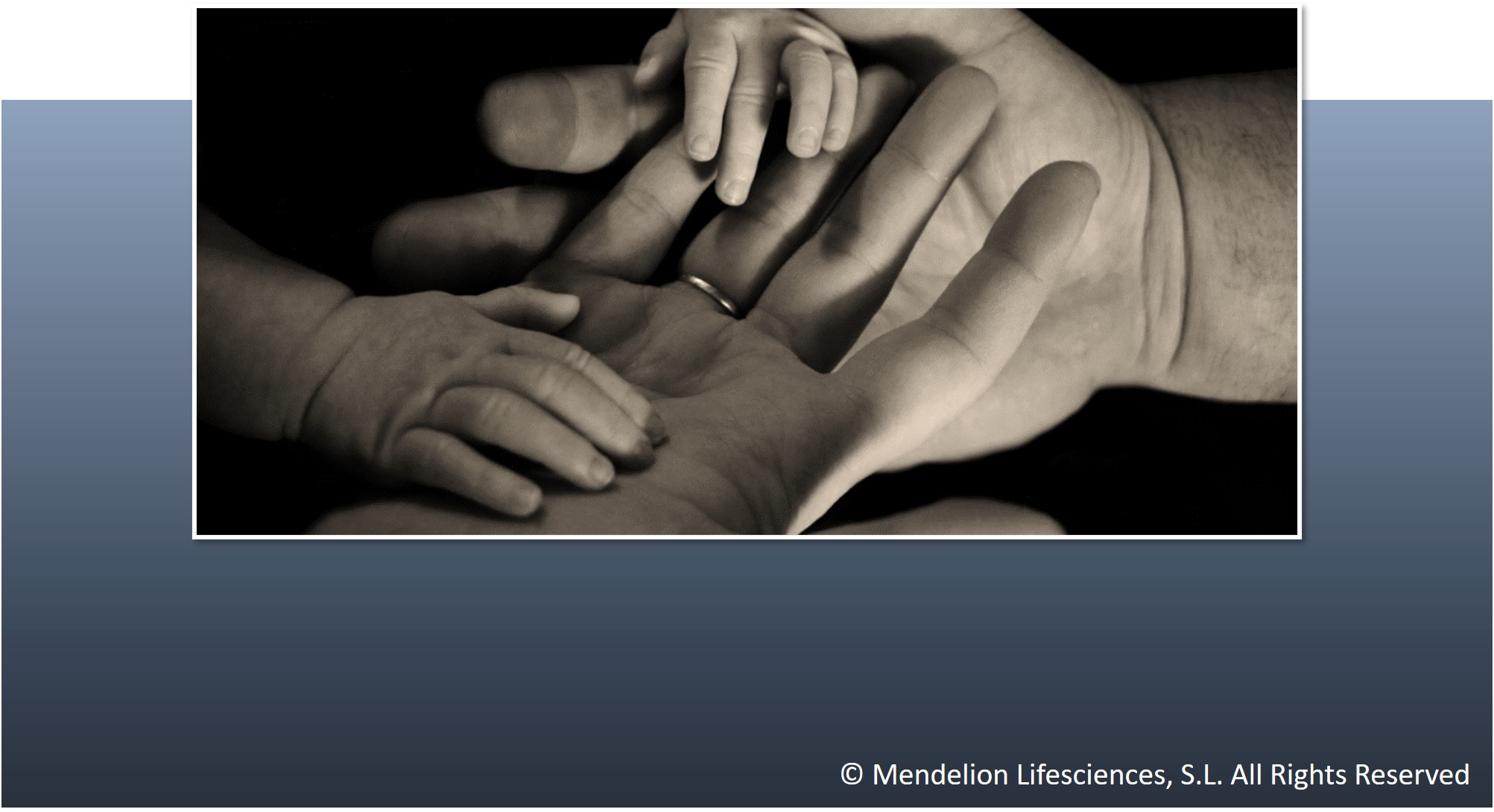
Mendel
Mendel was a 19th century scientist and friar from Brno, nowadays Csech Republic, who studied the inheritance of traits like seed shape and color in peas. He is considered to be the founder of the science of genetics.
Mutation
The word mutation is derived from the latin mutare (move, change, vary). In genetics the term mutation is used to describe changes in DNA sequence that occur due to accidental errors in replication of DNA during cell division, or radiation or chemicals present in our environment or food. Mutations underly genetic variation and are the basis of evolution. The genomes of living beings are in constant motion and this permits species to adapt over time. Mutation can provide new traits that provide advantages and an opportunity to prosper, or alternatively they can present a disadvantage and ultimately cause a bloodlineage to disappear.
Chromosomes
The DNA in human cells is organized in chromosomes. Most humans have 23 pairs of chromosomes, including 22 pairs of autosomes and 1 pair of sex chromosomes. Consequently, most genes are present in duplicate.
Inheritance
A baby inherits one copy of each gene from each of its parents. Traits or mutations can be dominant, recessive, or co-dominant. A baby that inherits a dominant disease allele from either parent, will be destined to develop the disease. A baby that inherits a single recessive disease allele from one of his or her parents, will be a carrier. A baby that inherits a recessive disease allele from each of its parents, will also develop the disease at some point of its life.

Genetic Disease
Differences in the DNA give rise to the colorful characteristics that distinguish individuals from each other. Mutations that negatively affect genes can lead to genetic disease. Humans are diploid organisms and have 2 copies of most genes. A dominant mutation in one copy is sufficient to cause disease. A recessive mutation will only led to disease when inherited from both parents. Intermediate situations exist in which on emutated alles is less severe than two.
The burden of genetic heritage
The human genome harbors + 20,000 protein coding genes. It has been estimated that each person carries about 400 protein-damaging mutations and two or more high-risk mutations that could affect gene function. Fortunately, the frequency at which deleterious mutations occur in each specific gene is relatively low, and most genetic diseases are recessive traits. To anticipate transmission of potential disease alleles, future parents can submit themselves to genetic testing.
Nobody has a clean gene chart.
Any newborn can be dealt with bad gene cards.

Read our Data Protecion Policy


